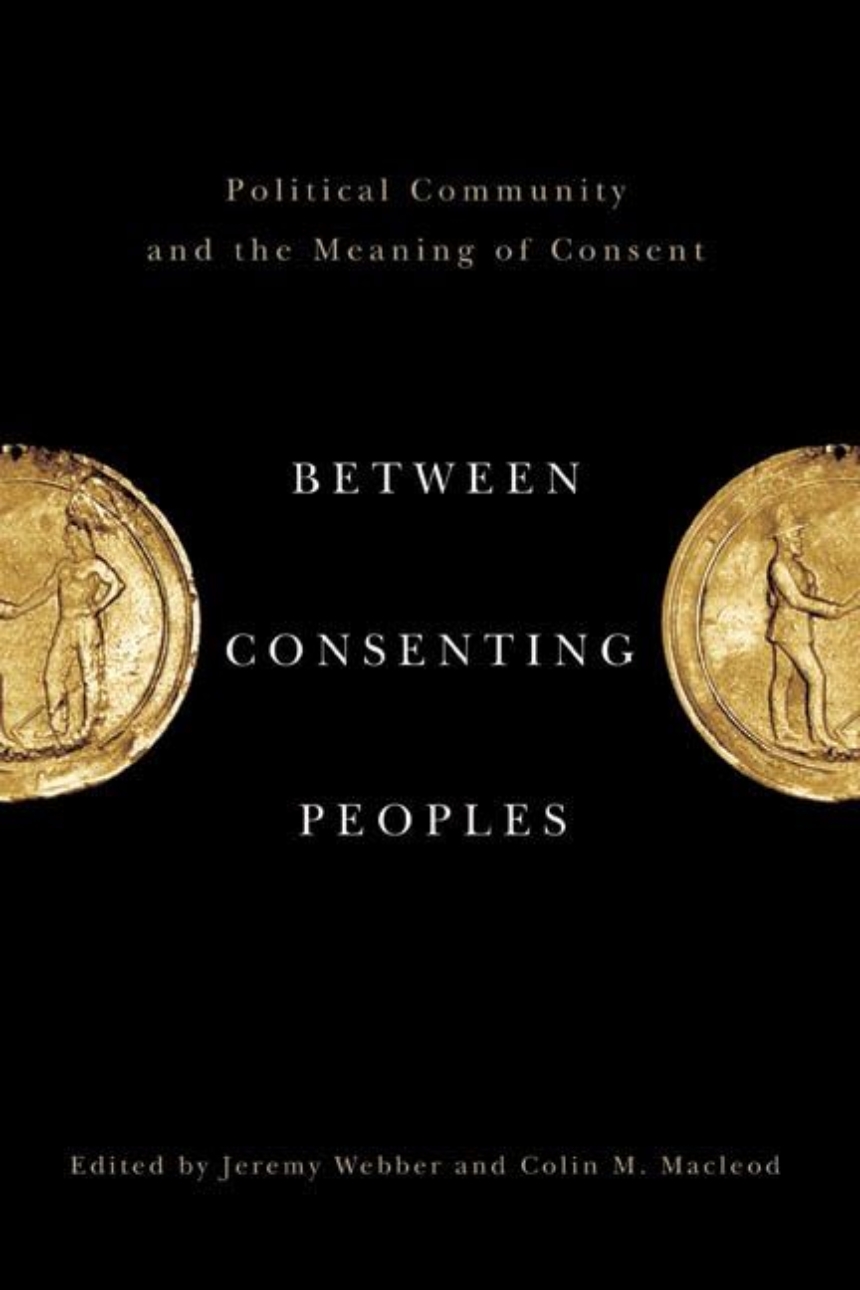University of British Columbia Press
Between Consenting Peoples
Political Community and the Meaning of Consent
Distributed for University of British Columbia Press
Between Consenting Peoples
Political Community and the Meaning of Consent
Table of Contents
Introduction
1 The Meanings of Consent / Jeremy Webber
Part 1: The Challenges of Consent in Indigenous Contexts
2 Living Together: Gitksan Legal Reasoning as a Foundation for Consent / Val Napoleon
3 “Thou Wilt Not Die of Hunger ... for I Bring Thee Merchandise”: Consent, Intersocietal Normativity, and the Exchange of Food at York Factory, 1682-1763 / Janna Promislow
4 The Complexity of the Object of Consent: Some Australian Stories / Tim Rowse
Part 2: Reconceiving Consent in Political and Legal Philosophy
5 Indigenous Peoples and Political Legitimacy / Margaret Moore
6 Consent, Legitimacy, and the Foundation of Political and Legal Authority / David Dyzenhaus
7 Consent or Contestation? / Duncan Ivison
8 Beyond Consent and Disagreement: Why Law’s Authority is Not Just about Will / Andrée Boisselle
Concluding Reflections
9 Consent, Hegemony, and Dissent in Treaty Negotiations / James Tully
Index

